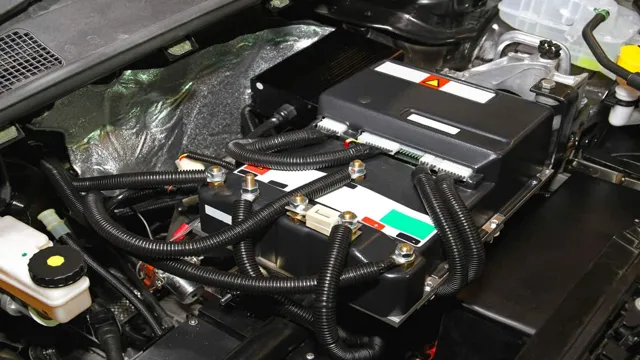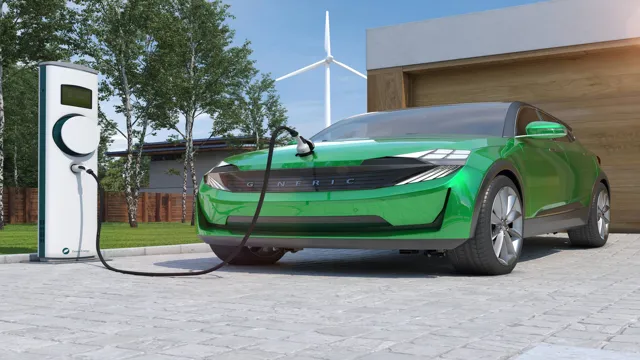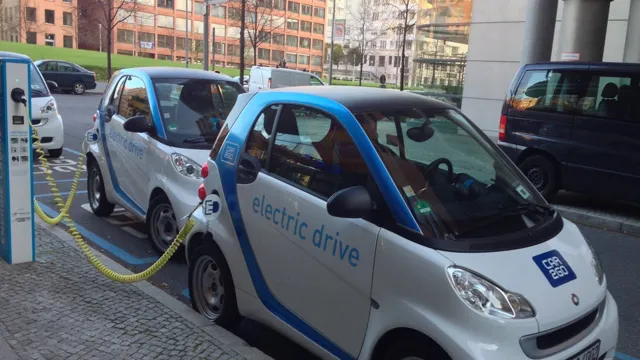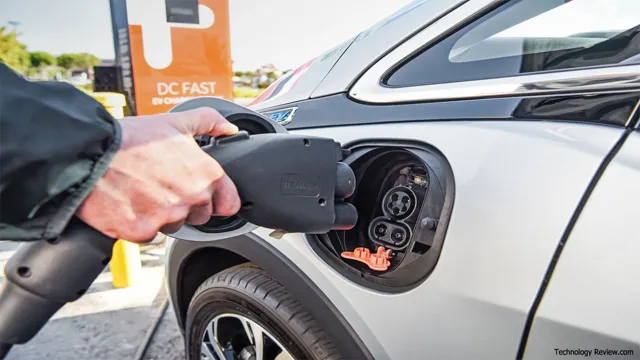The Ultimate Guide to Electric Car Engines: Everything You Need to Know
Have you ever seen an electric car on the road and wondered what makes it tick? Many people are curious about how electric car engines function compared to those of traditional gasoline-powered vehicles. While both engines propel the car forward, the technology behind each is vastly different. In this complete guide to electric car engines, we’ll break down everything you need to know to understand how they work, including everything from the basics to the more complex inner workings.
By the end, you’ll have a clear understanding of how an electric car engine can power a car and why they’re becoming increasingly popular in our modern world. So buckle up and let’s get started!
What Are Electric Car Engines?
If you’re considering purchasing an electric car, it’s important to understand the basics of electric car engines. Unlike traditional combustion engines, electric car engines use electricity to propel the vehicle instead of gasoline. The electric motor is powered by a battery that is charged by plugging the car into an electrical outlet.
Electric motors have a slower acceleration than gas engines, but they are extremely efficient and have less moving parts, which means less maintenance. Plus, electric car engines provide a quiet and smooth driving experience. One thing to keep in mind is that the range of your electric car will depend on the size of the battery.
If you’re looking for a more eco-friendly and cost-effective option for transportation, then an electric car may be the perfect choice for you.
The Basics of Electric Car Engines
Electric car engines are quite different from traditional gasoline engines, but they share one basic function: to provide propulsion for the vehicle. The electric car engine relies on the power stored in the car’s battery to operate a system of electric motors, which turn the wheels and move the car forward. The motor is controlled by an electronic controller that regulates its speed and torque output.
Unlike internal combustion engines, which require fuel to burn and create energy, electric car engines use the energy stored in the battery to produce power. This means that they don’t produce any emissions, making them an eco-friendly alternative to traditional vehicles. Additionally, electric car engines are much quieter, more efficient, and require less maintenance than their gasoline counterparts.
Overall, electric car engines offer a clean, quiet, and efficient driving experience that is quickly gaining popularity around the world.
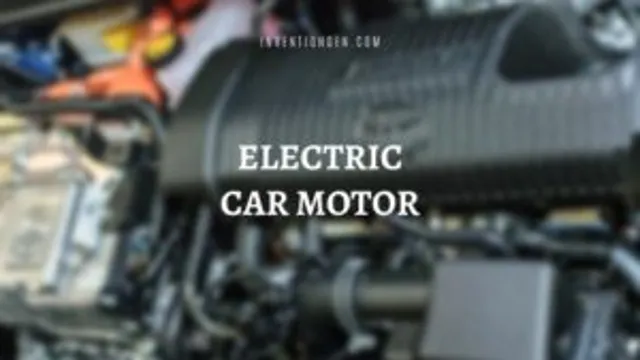
Types of Electric Car Engines
Electric car engines are the propulsion systems that power electric vehicles (EVs). Unlike traditional cars that rely on gasoline or diesel engines for power, an electric car’s engine is powered by electricity stored in a battery. There are different types of electric car engines, each with its unique characteristics and benefits.
The most common type of electric car engine is the AC motor, which is powered by alternating current and has a simple design that makes it easy to maintain. Another type of electric car engine is the DC motor, which is powered by direct current and is known for its high torque capabilities, making it an excellent choice for heavy-duty applications. Other types of electric car engines include induction motors, permanent magnet motors, and switched reluctance motors.
Each type of engine has its advantages and disadvantages, and the choice of which one to use depends on factors such as the vehicle’s size, weight, and intended use. Whether you’re a commuter or an environmental enthusiast, the range of electric car engine options means that there’s an electric car out there for everyone.
Advantages of Electric Car Engines
If you’re considering making the switch to an electric car, you may be wondering about the advantages of electric car engines. One of the biggest benefits of an electric car engine is the fact that it produces zero emissions. This not only reduces your carbon footprint, but it also means that you won’t be contributing to air pollution in your community.
Another advantage of electric car engines is that they are much cheaper to operate than traditional gasoline engines. With an electric car, you can save hundreds of dollars a year on fuel costs alone. Electric cars are also incredibly quiet, which makes for a much more enjoyable driving experience.
Overall, there are many benefits to choosing an electric car engine – from cost savings to environmental impact – that make it a smart choice for car buyers today.
Environmental Benefits
One of the greatest advantages of electric car engines is the positive impact they have on the environment. Unlike traditional gasoline-powered cars that emit carbon dioxide and other harmful pollutants, electric cars emit zero emissions, making them a greener and more sustainable mode of transportation. This means that they significantly reduce the carbon footprint of drivers and play a crucial role in the fight against climate change.
Additionally, electric cars are energy-efficient and require less fuel consumption, which lowers the demand for oil and gas and further reduces emissions. By choosing to drive an electric car, you can contribute to a cleaner and healthier planet, without having to sacrifice performance or comfort on the road. So, what are you waiting for? Take the first step towards a greener future and make the switch to electric today!
Cost Savings
When considering buying an electric car, one of the main advantages is the potential for significant cost savings. Unlike traditional gas-guzzling cars, electric vehicles (EVs) require much less maintenance and have fewer moving parts that can wear down over time. This means that EVs typically cost less to own and operate over the long term.
In addition, EVs don’t require regular oil changes or emissions tests, and they may also qualify for tax credits or rebates that can further reduce their overall cost. While up-front costs for electric cars can be higher than those for gas-powered vehicles, their long-term savings can more than offset this initial investment. Overall, electric car engines offer a compelling combination of environmental benefits and potential cost savings over the lifetime of the vehicle.
Performance Advantages
When it comes to the advantages of electric car engines, one of the biggest performance benefits is their instant torque. Unlike traditional combustion engines, electric motors don’t require time to build up power, making acceleration incredibly smooth and responsive. This instant torque delivery also means electric cars can often accelerate faster than their gas-guzzling counterparts.
Additionally, electric car engines have fewer moving parts, reducing the possibility of mechanical failure and reducing maintenance costs. Furthermore, because electric motors don’t produce excessive heat or vibration like gasoline engines do, they can run more efficiently and quietly. Overall, the advantages of electric car engines make them a highly desirable option for environmentally-conscious drivers looking for a high-performance vehicle.
Components of Electric Car Engines
Are you looking to explore the inner workings of electric car engines? Let’s dive in. Electric car engines, also known as electric motors, consist of several components that work together to provide power to the car. The core of the engine is the stator, which is a stationary part of the motor that contains the windings.
The rotor is the moving part of the engine that contains permanent magnets. The power electronics control the flow of electricity to the motor, which is connected to the battery. The throttle control and regenerative braking system also play a vital role in managing the performance and energy efficiency of the electric car engine.
Overall, understanding the components of an electric car engine can help you optimize the performance of your vehicle and get the most out of your ride.
Battery System
The battery system is a crucial component of electric car engines, providing power to the motor and allowing the car to move. The most common type of battery used in electric cars is a lithium-ion battery, which is lightweight and has a high energy density, allowing it to provide enough power to drive the car for long distances. The battery system consists of several components, including the battery pack, which contains multiple lithium-ion cells linked together in series and parallel to increase voltage and capacity.
The battery management system is another critical component, which regulates the charging and discharging of the battery, ensuring that the battery remains within its safe operating range. Other components include the inverter, which converts the battery’s DC power into AC power used by the motor, and the electric motor controller, which manages the motor’s power and speed. By combining these components, the battery system can provide the power necessary to drive an electric car, allowing for a greener, more sustainable mode of transportation.
Inverter
Inverter One of the crucial components of an electric car engine is the inverter. The inverter is responsible for converting the DC (Direct Current) power from the car’s battery into AC (Alternating Current) power, which is then used to power the electric motor. This conversion is necessary because electric motors can only run on AC power.
The inverter comprises several power switches that alternate between opening and closing to create the AC power output. This process is referred to as pulse-width modulation, and the frequency and duration of the pulses determine the output waveform. The inverter also includes a microcontroller that monitors and adjusts the power output to maintain optimal performance and efficiency.
The inverter’s size and design vary depending on the car’s make and model, but it is typically located near the motor or transmission. The inverter is a crucial component of the electric car’s powertrain, enabling the car to use the battery’s DC power to drive the electric motor effectively.
Electric Car Engine Maintenance
If you’re the proud owner of an electric car, you may be wondering how best to maintain its engine. Fortunately, electric car engines require much less upkeep than traditional gas engines. One important aspect to keep in mind is checking the coolant levels regularly.
Electric motors generate heat, so keeping the coolant at the right levels is crucial to preventing damage and prolonging the life of the engine. Another important tip is to monitor the battery levels and charging habits. Avoid letting the battery get too low before recharging, as this can cause unnecessary strain on the engine.
Additionally, it’s important to keep your electric car clean and free of debris, as this can cause damage to the sensitive components of the engine. With these tips, you can keep your electric car engine running smoothly for years to come.
Battery Maintenance
Maintaining the battery of an electric car is crucial for keeping the vehicle running smoothly. Regular maintenance checks should be conducted to ensure the battery is charging properly and is not at risk of overheating or malfunctioning. One way to maintain the battery of an electric car is to avoid fully draining it.
Similar to how a cellphone battery works, the battery in an electric car should not be fully drained as this can shorten its lifespan. Instead, aim to keep the battery level between 20-80% for optimal performance. Additionally, it’s important to keep the battery clean and cool, as high temperatures can cause damage.
Owners should regularly clean the battery terminals with a mild detergent and keep the battery area free from debris. By following these basic steps, electric car owners can extend the life of their vehicle’s battery and avoid expensive repairs.
Motor and Inverter Maintenance
Electric car engine maintenance is an essential aspect of owning an electric vehicle. One of the critical components of the electric car is the motor and inverter, which requires routine maintenance to ensure optimal performance. Regular maintenance includes cleaning air filters, changing oil, and inspecting belts and hoses.
It’s essential to schedule maintenance services with a qualified electric car technician to ensure that your vehicle is running correctly. Neglecting maintenance can lead to significant problems, including reduced battery life, decreased performance, and unexpected breakdowns. To avoid costly repairs, it’s crucial to stay on top of your electric car maintenance schedule.
By doing so, you can enjoy the full benefits of an electric vehicle, including lower maintenance costs and reduced emissions. Electric car engine maintenance is an investment in the longevity and performance of your vehicle, making it a vital aspect of car ownership.
Conclusion
In conclusion, electric car engines are revolutionizing the automotive industry and paving the way for a greener, cleaner future. Unlike their gas-guzzling counterparts, these engines emit no harmful pollutants and require minimal maintenance, offering a cost-effective and eco-friendly transportation solution. With advancements in battery technology and infrastructure, the range and charging times of electric cars are constantly improving, making them a viable alternative for everyday driving needs.
So, if you’re looking to make a positive impact on the environment without sacrificing performance, it’s time to switch to electric and join the electric revolution! After all, who needs a roaring engine when you can silently fly down the road in style?”
FAQs
What is an electric car engine?
Unlike traditional cars that use internal combustion engines, electric cars use electric motors to generate power and move the vehicle.
How does an electric car engine work?
An electric car engine works by using energy stored in batteries to power an electric motor, which turns the wheels of the car. The motor uses electromagnetic fields to create rotational motion.
What are the advantages of electric car engines?
Electric car engines are more energy-efficient and environmentally friendly than traditional combustion engines. They emit no harmful pollutants and have lower operating costs.
How long do electric car engines last?
Electric car engines have fewer parts and require less maintenance than traditional combustion engines, making them more durable. They can last up to 20 years or more with proper care and maintenance.

